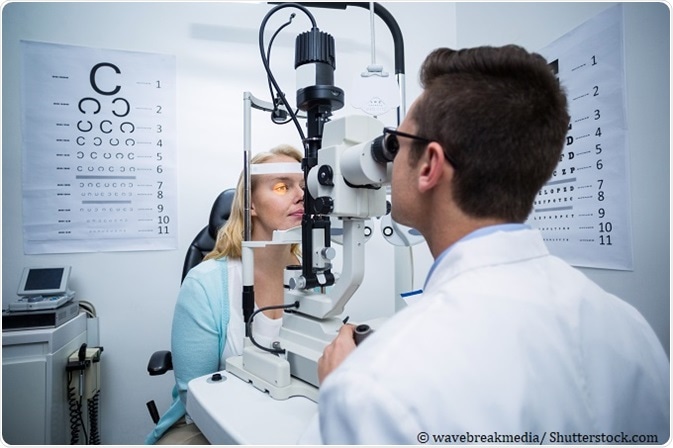Discover Advanced Services at Opticore Optometry for Eye Health
Comprehending the Comprehensive Function of an Optometrist in Modern Eye Care
In the advancing landscape of health care, the scope of an optometrist's duty has significantly expanded, prolonging well beyond the confines of conventional vision modification. With innovations in technology and an enhancing emphasis on preventative treatment, eye doctors are integral in diagnosing and managing persistent eye problems, while also participating in very early condition discovery. Their competence in advanced diagnostic techniques such as optical coherence tomography is very useful. How do these duties converge with their function in advertising total eye health and wellness, and what does this mean for person outcomes in a collective medical care atmosphere?
Expanded Extent of Practice
In recent years, the function of optometrists has actually progressed substantially, with lots of professionals now accepting a broadened scope of method that extends past typical eye exams. Their duties currently include a large array of solutions, including suggesting drugs for ocular conditions, handling chronic eye conditions, and doing minor medical procedures.
Further, eye doctors are now much more associated with collaborative treatment, working very closely with ophthalmologists, primary care doctors, and various other health care experts to ensure all natural patient care. This interprofessional partnership is important in handling intricate situations that call for a multidisciplinary method. Additionally, optometrists are playing a crucial duty in public health campaigns, such as vision testings and eye health and wellness education and learning, intended at improving area health and wellness results.
The increased extent of technique for optometrists not just boosts their capability to give thorough treatment yet additionally deals with the growing demand for accessible and reliable eye care services, contributing to total healthcare improvements.
Early Illness Detection
Very early detection of eye diseases is significantly becoming a centerpiece in the increased role of optometrists. As primary eye care suppliers, eye doctors are distinctively placed to recognize very early indicators of eye conditions such as glaucoma, macular degeneration, diabetic person retinopathy, and cataracts. This crucial role is vital, as very early diagnosis can considerably boost the management and prognosis of these problems, potentially protecting against vision loss and boosting person end results.
Optometrists employ thorough eye assessments to identify subtle changes in vision and eye health. The capacity to recognize early indicators of systemic health issues, such as hypertension and diabetes, with eye indicators additionally underscores the significance of normal eye check-ups.
Furthermore, optometrists play an essential function in patient education and learning, highlighting the relevance of regular eye evaluations as part of general health care. By promoting a positive technique to eye treatment, optometrists add considerably to public health, guaranteeing conditions are caught and taken care of effectively before they can progress.
Advanced Diagnostic Strategies
Advanced analysis strategies have actually reinvented the practice of optometry, enabling practitioners to detect and monitor ocular diseases with unprecedented precision. Technologies such as optical comprehensibility tomography (OCT) give high-resolution, cross-sectional pictures of the retina, promoting very early discovery of conditions like glaucoma and macular deterioration.
An additional critical development is electronic retinal imaging, which catches thorough views of the retina using high-definition video cameras. This innovation is vital in recognizing adjustments in retinal structure over time, thereby aiding in the management of problems like diabetic person retinopathy. Aesthetic field screening, enhanced by computer-aided systems, enables specific mapping of a patient's field of view, necessary in diagnosing and tracking glaucoma development.
Corneal topography, another remarkable diagnostic device, generates topographic maps of the cornea's surface. This is especially beneficial in suitable call lenses and preparing refractive surgical procedure. These sophisticated diagnostic techniques collectively enable eye doctors to provide positive, targeted treatment, making certain much better patient results and enhancing their pivotal role in eye health and wellness monitoring.
Managing Chronic Eye Conditions
Managing persistent eye problems is a cornerstone of optometric care that calls for an extensive understanding of various ocular illness and their long-term ramifications. Optometrists play a crucial role in diagnosing, surveillance, and handling problems such as glaucoma, diabetic retinopathy, and age-related macular degeneration. These problems, if left without treatment, can result in substantial visual disability or loss of sight, highlighting the important value of recurring care and administration.
Eye doctors utilize a variety of analysis tools, including optical coherence tomography (OCT), visual area screening, and fundus photography, to examine the progression of these chronic problems. By closely keeping track of changes in ocular wellness, eye doctors can adjust treatment plans to reduce illness development. This might entail suggesting medications, recommending lifestyle adjustments, or coordinating with ophthalmologists for surgical interventions when necessary.

Function in Preventive Care
Precautionary care is an essential element of optometry that concentrates on keeping eye wellness and avoiding the beginning of ocular diseases. Optometrists play a vital role in very early detection and prevention, employing normal eye exams to determine danger variables and refined changes in eye health and wellness. Eye Doctor. These examinations are not just regarding vision correction however encompass a detailed assessment of eye features and structures, making it possible for the identification of problems such Get More Information as glaucoma, cataracts, and macular deterioration at an onset
Along with diagnostics, eye doctors educate people on lifestyle selections that promote eye health and wellness, such as correct nutrition, UV defense, and the importance of routine eye exams. They recommend on the proper use of digital tools to stop digital eye stress, an expanding concern in the digital age. Eye doctors also supply guidance on protective glasses for work and entertainment tasks, minimizing the risk of injury.
Preventative eye treatment extends to systemic health and wellness concerns that show up in the eyes, such as diabetes and hypertension. By working together with various other medical care specialists, eye doctors contribute to holistic client care, highlighting the interconnectedness of eye and systemic wellness. This aggressive strategy is essential in protecting visual acuity and general wellness.
Final Thought
Optometrists currently occupy a crucial function in modern-day eye care, characterized by a broadened scope that includes identifying and managing chronic eye conditions, prescribing medications, and performing minor procedures (Eye Doctor Optometrist). Their knowledge in early disease discovery is boosted by innovative diagnostic techniques such as optical coherence tomography and electronic retinal imaging. By stressing precautionary care and patient education and learning, eye doctors contribute considerably to overall eye wellness, teaming up with other healthcare specialists to make certain detailed and efficient individual outcomes

In addition to diagnostics, eye doctors educate individuals on lifestyle options that promote eye health and wellness, such as correct nutrition, UV defense, and the significance of regular eye exams.Preventive eye care expands to systemic health problems that show up in the eyes, such as diabetes and high blood pressure.Optometrists currently occupy an essential duty in modern eye care, identified by an expanded scope that consists of identifying and taking care of chronic eye conditions, recommending drugs, and performing minor surgical treatments.